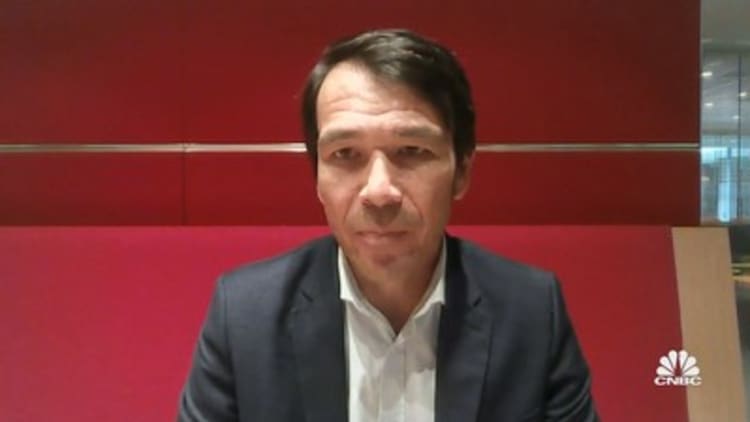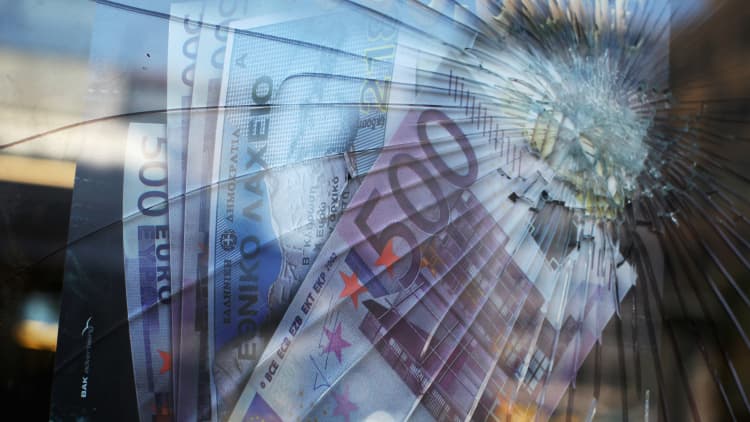The euro zone economy is heading towards a recession, according to several economists.
Daniel Roland | Afp | Getty Images
The euro zone is expected to plunge into recession in the coming months with economists warning “it will not be shallow.”
The 19-member zone that shares the euro currency has been under significant pressure since Russia’s unprovoked invasion of Ukraine in February. A combination of sanctions against the Kremlin, an abrupt end to Russian gas imports, and the need to provide financial support to households and firms struggling with the energy crisis has darkened the outlook for the bloc — which at the start of the year was predicted to grow more rapidly than the United States.
“Consumer confidence has plunged so badly that the recession will likely not be shallow,” Holger Schmieding, chief economist at Berenberg, told CNBC earlier this month.
Data from the European Commission, the executive arm of the EU, showed that consumer confidence dropped to a record low in September. It has improved slightly since then, but households still fear for the future and their financial positions.
Schmieding said euro zone real (adjusted for inflation) gross domestic product will contract sharply in the fourth quarter and in the first quarter of next year — with a cumulative drop of 1.7%. A recession is defined as two consecutive quarters of contraction.
‘Risk of recession has increased’
Preliminary growth estimates for the region suggest a slowdown in the third quarter from the previous-three month period — from 0.8% growth to 0.2%. Belgium, Latvia and Austria registered economic contractions over the last quarter.
“I wouldn’t call it shallow, it will be deeper than certainly what the ECB [European Central Bank] council expects,” Spyros Andreopoulos, a senior European economist at BNP Paribas, told CNBC earlier this month.
The ECB has slowly started to acknowledge the likelihood of a recession in the region. Speaking earlier this month, ECB President Christine Lagarde highlighted that “the risk of recession has increased.”
But annual growth forecasts published by the central bank do not yet envisage an economic contraction across the bloc. They currently point to a GDP rate of 3.1% this year and 0.9% in 2023. Updated figures are due to be published next month.

“I see a risk [the recession] might drag into the second quarter [of 2023],” Andreopoulos said, citing the energy crisis and monetary policy tightening.
There is an obvious risk that temperatures,…
Click Here to Read the Full Original Article at Top News and Analysis (pro)…


